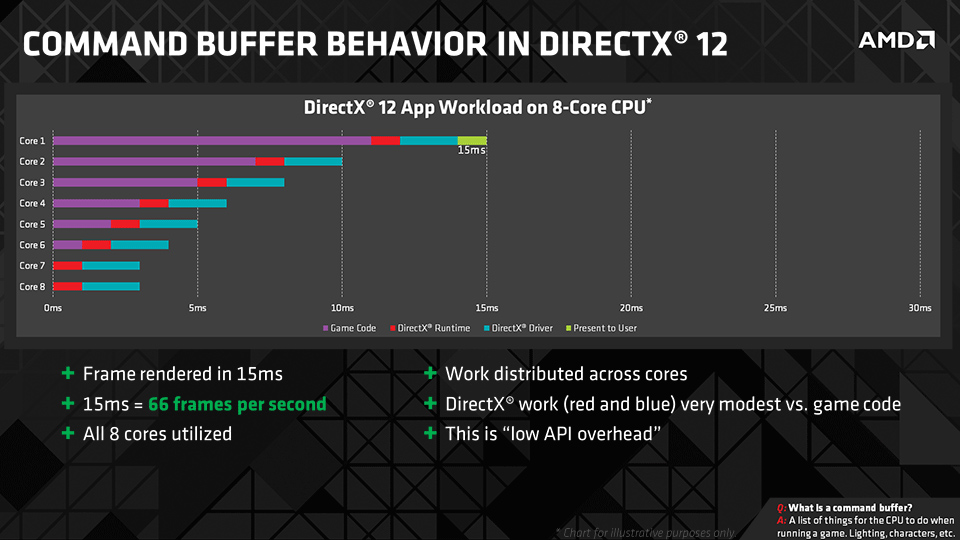What you also need to realise is that cores are only one aspect of a cpu's potential performance.And their you go. Command Buffer Behavior in Direct 12
ALL 8 CORES UTILIZED
WORK DISTRIBUTED ACROSS ALL CORES.
As we've been saying it's already begun, so yes single thread is still important and 4 cores is more popular, but that will now begin to change. That 4 core that has been Intels staple for the last ten years with the i5's and i7's is no more, it's now 6 core. Does that still not mean anything to you? Like I said keep your 4 core for as long as you want, my next cpu will likely have 8 and I'm quite sure that most people on here will now go 6+ when they finally upgrade.
Ipc and clockspeed are equally important.
Although what is most important of all and what determines just how well a cpu does is an application. Yes a tiny, tiny percentage of applivations are starting to use more than four cores but it's really not worth basing a current purchase on that because the cpu won't perform as well as a faster four core in the majority of applications and by the time (years and years) we get to the point where such software is the norm the current crop of octocores will be obsolete.
AMD's fx series should demonstrate to anyone that moar cores is not the be all and end all. It was getting wasted by an intel dual core so no moar cores is not always the answer.


 .
.


